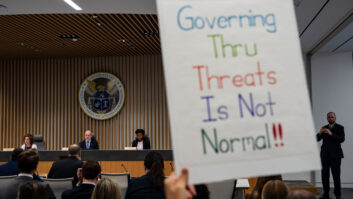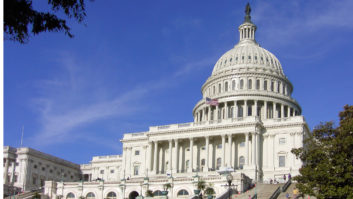WASHINGTON — Rep. Adam Kinzinger (R-Ill.) has reintroduced H.R. 6422, the Federal Communications Commission Transparency Act, which would mandate that the FCC publish the drafts of items to be considered in a public meeting 21 days ahead of that vote.
The FCC already does it as a matter of practice under FCC Chairman Ajit Pai, one of a number of process reforms the chairman has undertaken. But Kinzinger wants to make it the law of the land for future chairmen and commissions.
“Today, I’m proud to reintroduce the FCC Transparency Act and further our mission to increase transparency, efficiency, and accountability at the Federal Communications Commission,” said Kinzinger. “FCC Chairman Ajit Pai has established some commonsense programs to increase transparency at the Commission, and my legislation will simply make some of the most important parts of those policies permanent.”
“I applaud Representative Kinzinger on reintroducing the Federal Communications Commission Transparency Act,” Commissioner Michael O’Rielly said in a statement Kinzinger included with his bill announcement. “This legislation codifies the current and critical commission practice of publicly posting items three weeks in advance of their consideration at monthly commission meetings. As a result of this practice, unnecessary discussions of non-existent issues have been eliminated, conversations are more productive, commissioners are still speaking their minds and negotiating internally on items, and work product has greatly improved. I have also seen comments from all commissioner offices — Republican and Democrats — in favor of the practice. Despite the broad support for this program, as well as chairman Pai’s effort to initiate this reform for added agency transparency, I believe codifying this practice is important to ensuring its longevity.”
The bill provides some discretion for the chairman to waive the requirement if a document is deemed confidential, classified or its release would be an invasion of privacy, along with other “sensitive data” exemptions per “longstanding law and policy.”
Kinzinger introduced a similar bill in 2015.







